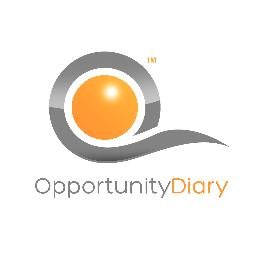Application Deadline: February 15th 2021
Eurasia Hub announces the next iteration of the multi-mode course in Natural Resources for Sustainable Development. Due to the pandemic the Hub is organizing the second iteration of the course and will conduct the online phase in Fall-Winter 2020. The participants of the new iteration will get a chance of joining the residential phase together with the most successful participants of the online course from the Spring 2020 edition. In addition to modules in data analysis, revenue management and contracting the participants of the online phase will have an opportunity to participate in an online discussion with Eurasia Hub experts on the consequences of COVID-19 for resource-rich countries of the region.
The multi-mode course offers a well-grounded knowledge of theories and practices for efficient resource governance. The overarching goal of the course is to equip participants with the knowledge and skills necessary:
– For building a broad understanding of policy challenges in resource governance with an in-depth focus on legal and fiscal framework and revenue management
– For developing policy scenarios with integrating analytical tools into forming an information base in the decision-making process
– For assessing most relevant decisions in achieving specific country development priorities
– For building up necessary skills in usage of data in evidence-based policymaking
The program aims to facilitate a rich dialogue about best practices from around the globe and their lessons for countries in the region. Lectures, online Q&A’s and discussions combined with practical work based on case studies, policy analysis and peer-to-peer exchange with practitioners and experts in the field will help participants to share experience in reversing the resource curse for sustainable development.
One of the previous participants of the Eurasia Hub training course Chinara Yagubova, civil society representative from Azerbaijan said: “I participated at the training offered by the Eurasia Hub two times – in 2013 and 2018. I started feeling more confident in handling issues of transparency and accountability in extractive industries, which is one of the core action fields of the NGO I work for.”
Content:
The program will consist of three stages.
Online stage (2 months): participants will acquire introductory knowledge about resource governance and will need to complete weekly assignments in order to be considered for the residential stage. The learners will get a chance to have a live session with the lecturers of the residential phase.
Residential stage (10 days):
The participants for the residential stage will be selected based on their performance during the online phase, the relevance of their background, and future career perspectives. The preference for participation in the residential stage will be given to the participants who haven’t participated at one of our physical trainings before. After gaining a solid understanding of key tenets of natural resource decision chain participants will spend 10 days at Khazar University. All participants will attend sessions on the political economy of policy-making in resource-rich states, policy analysis and design, data analysis, policy options for sustainable development. Thereafter, they will be asked to choose one of two paths:
Path 1: Getting a good deal: Designing and evaluating fiscal regimes
Course participants will gain a better understanding of the key features of these tools, their similarities and differences, and the challenges of administering taxes and effectively collecting revenues. Participants who choose Path 1 will be able to dive deeper into these issues and develop key practical and analytical skills. Their time will be evenly divided between classroom lectures and group work. In guided workshop sessions, Path 1 participants will learn to read and use Excel-based models to evaluate and compare different fiscal regimes, make investment decisions, forecast revenue streams and assess risks of revenue leakages.
Courses and exercises covered in Path 1 will include licensing and allocation of rights and links to cost-benefit analyses, contracts in extractive industries, institutional framework of fiscal regime, transparency and tax evasion, which will provide participants with a nuanced and practical understanding of tax policy in resource-rich countries.
Path 2: Distributing, Managing, and Spending Resource Revenues
Participants in Path 2 will explore how to analyze and overcome over-dependence on a single source of revenue, over borrowing, followed by debt crises, poor quality public investment, destabilizing “boom-and-bust” cycles.
Sessions will examine the causes of weak development outcomes in resource-rich environments and elaborate on some available tools to improve the distribution, management, and use of oil, gas, and mineral revenues. These tools include: rules describing revenue distribution to the national budget, special funds, sub-national jurisdictions, and state-owned companies; rules controlling the amount of resource revenues that enter the domestic economy; public accountability mechanisms for revenue and expenditure management; and formulation and implementation of national and sub-national development plans.
Final Assignment:
This could take the form of a research or analytical paper to inform in-country debates or specific policy recommendations for the government, depending on the affiliation and level of influence of the participant. Each student will be assigned a corresponding Eurasia Hub instructor to provide mentorship.
This is a mandatory part of the program for completion.
Potential participants:
Mid-level government, senior parliamentary staff, specialized civil society and media, international development agencies and private company representatives, as well as academics and researchers from countries of the Eurasia region. Self-funded participants are welcome.
Language:
The working language of the course is Russian. Materials in both English and Russian languages will be used.
Costs:
Eurasia Hub will cover all the costs of the course for selected participants. This includes accommodation, meals, transport (flight tickets) to Baku and airport transfers within Baku. The costs occurring during the travel to and from the airport at the location of residency will not be covered by the Hub. Please note that self-funded participants are also welcome.
Application process:
To apply, please complete and submit the online application form here by February 15, 2021.
Questions:
In case you have any questions, please contact us via the following email addresses
Turana Alieva, Course Coordinator – turanaa.eurasiahub@gmail.com
Official Website: Eurasia Hub 2021 Multi-mode Course


